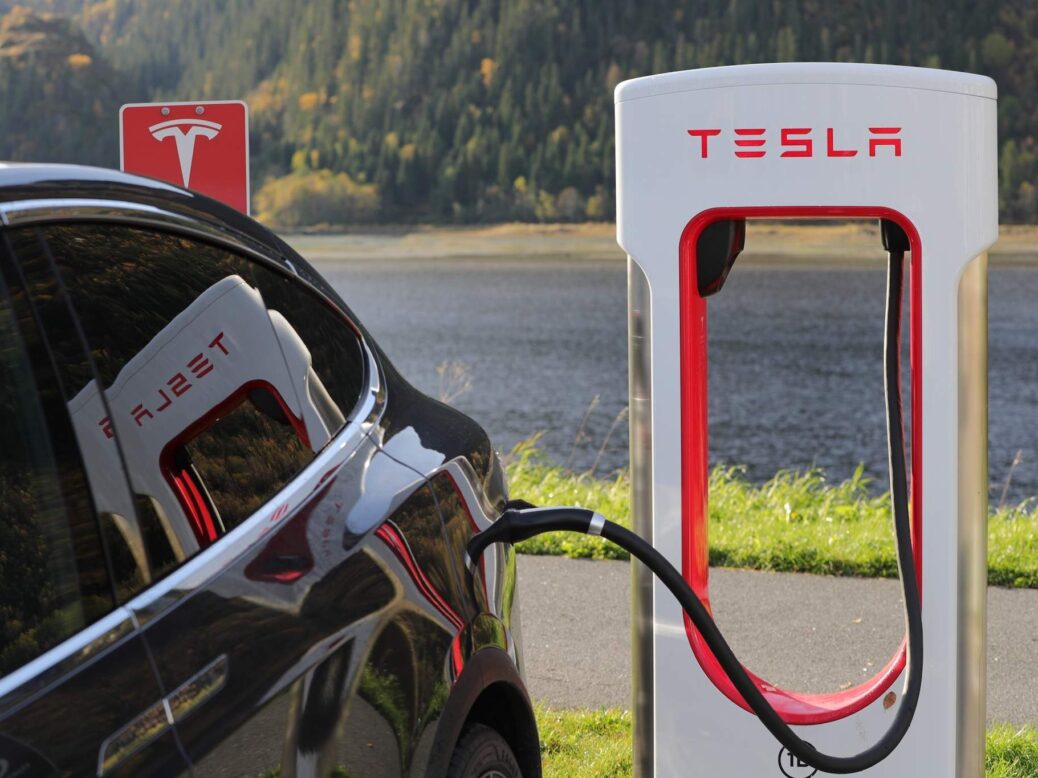
Electric cars have never been more talked about, desirable or exciting. With our European neighbours increasingly going green, and several car manufacturers planning to ditch diesel and petrol motors, what’s stopping us from embracing electric, writes Sarah Lewis
Plastic bags, microbeads and disposable coffee cups have all faced criticism in recent years, but none have faced quite as much vitriol as gas-guzzling, polluting, petrol and diesel vehicles.
Enter electric and hybrid cars –the sustainable future of the motor industry. Not only are they clean and green (modern electric cars produce zero tailpipe emissions), they’ve had a makeover. Electric vehicles have evolved into high-spec, sophisticated machines.
Luxury car manufacturers like Tesla have played a huge part in boosting the appeal of electric vehicles, with sleek designs and semi-automated features making its cars exciting to own and drive. People are interested – more than 4 million people Googled Tesla last year.
Other luxury brands such as BMW, Porsche and Jaguar all boast stylish electric models of their own, but there’s an ever-increasing range of affordable, chic versions on the market such as the Nissan Leaf and Renault Zoe.
Challenging misconceptions
With their green credentials and increasingly stylish designs, why then do plug-in vehicles only make up 2.2 per cent of new car sales in the UK?1
Infrastructure plays a part. Range anxiety (fear of running out of power before you reach a charging point) is a huge turn-off for drivers and, of course, they are expensive.
Add to this the myths surrounding electric vehicles – that they are slow to drive, expensive to charge and difficult to repair – and you can see why some motorists are reluctant to switch.
Modern electric vehicles are challenging these misconceptions. The Tesla Model S is one of the fastest-accelerating cars ever made and can travel for up to 383 miles on a single charge.
What, then, of the other concerns? Are they more expensive to run, insure and repair?
‘Yes and no,’ says Andreas Mavroudis, Senior Mobility Manager of Aviva’s Futures team. ‘Electric vehicles can be more expensive at point of purchase and can be slightly more expensive to insure. This is because, currently, they cost more to repair when something goes wrong.
‘As more consumers go electric, however, the cost of manufacturing and repairing these vehicles will fall – which will make the cost of buying and insuring them fall too.’
Consumers shouldn’t be put off, he adds, as the cheaper cost of running an electric vehicle can, in some cases, offset the expense.
Indeed, it can cost as little as £3.88 to fully charge an electric vehicle at home, according to research by government and industry electric car campaign Go Ultra Low2.

The electric agenda
The virtues of electric cars have impressed the UK government, which is keen to encourage take-up.
The sale of new conventional petrol and diesel cars will be phased out by 2040, and in Scotland by 2032, making electric a wise investment.
New legislation is on the way. The electric and autonomous vehicle bill currently going through Parliament should help boost the take up of electric vehicles and will mean driverless cars (which tend to be electric) can be insured3.
It’s working to increase the number of charging points too, with an extra £80m allocated to create a point at least every 20 miles along England’s strategic route network4.
The road ahead
Most experts agree that the future of mobility is electric, regardless of how quickly we get there. At least 30 per cent of new car sales are expected to be ultra low emission models by 2030, and the government estimates that figure could be as high as 70 per cent.
‘It’s not a question of if, but when, electric vehicles will become the norm,’ predicts Mavroudis. ‘This will be driven by government legislation and incentives, car manufacturers and, eventually, the adoption of autonomous vehicles.’
Car manufacturers are almost there. Volvo, GM and Jaguar Land Rover have all announced plans to electrify their lines by the early 2020s.
Significantly, electric vehicles have become almost synonymous now with the self-driving cars in development – cementing their place in motor industry future.
‘Ultimately, the exciting automated features of modern electric cars, paired with an eventual reduction in cost, will be what tempts people to use them,’ Mavroudis adds. Perhaps that green halo is just a bonus?

This is a sponsored article by Aviva
Sources
- Figures published by the Society of Motor Manufacturers and Traders (SMMT), 2018
- Research by OnePoll on behalf of Go Ultra Low in June 2018
- & 4. Government’s Clean Growth Strategy April 2018 https://assets.publishing.service.gov.uk/government/uploads/system/uploads/attachment_data/file/700496/clean-growth-strategy-correction-april-2018.pdf






